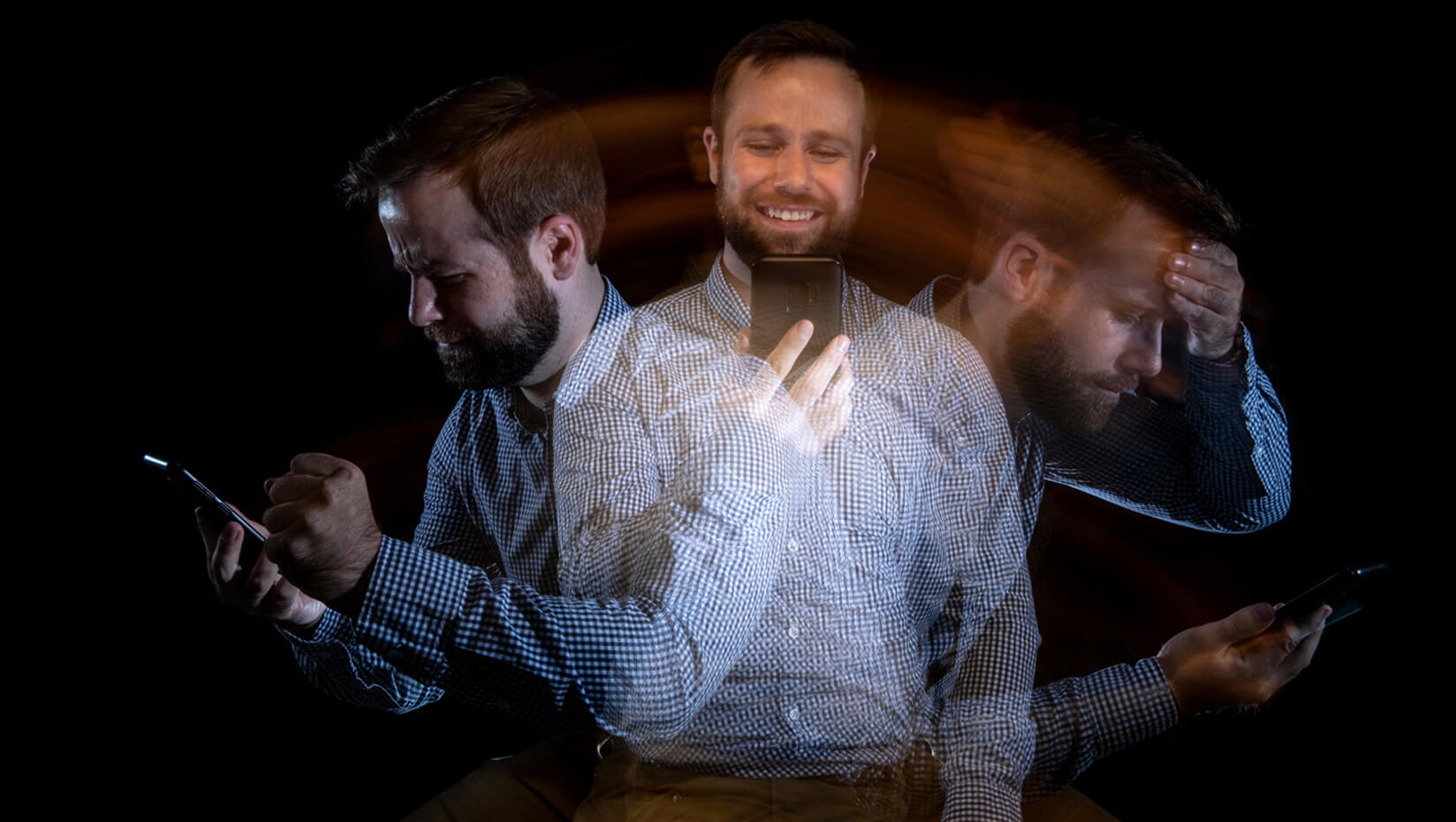
Bosma: Smartphone data could answer how people regulate emotions, lead to targeted treatment
What did you use your smartphone for today?
To FaceTime with friends, order a Lyft, pay bills, Google whether it’s OK to feed peanut butter to dogs?
For University of Maine clinical psychology doctoral student Colin Bosma, smartphones also are a research tool.
This fall, 110 volunteer participants in his study will fill out a series of questionnaire assessments and watch a video clip from a sad movie scene while hooked up to an electrocardiograph.
Then they’ll download an app developed in the Onnela Lab at the Harvard T.H. Chan School of Public Health to their smartphones that will collect data in real time for a week.
Bosma will analyze participants’ digital footprints to assess whether people who struggle to regulate sadness in response to an event — as determined by the questionnaires and electrocardiograph — are less social and less mobile.
Emotion regulation is the ability to intentionally reduce the intensity of an emotion. For example, a person saddened about the death of a friend might purposefully recall funny memories of the friend to feel better.
People who have difficulty regulating sadness are more vulnerable to mental health problems, including depression.
To completely understand emotion regulation, Bosma says an unobtrusive assessment of the construct — the person’s responses to sadness, anger or fear — as it occurs in the environment is needed.
Digital sensors in smartphones can provide that.
Every few seconds for seven days, the app will collect 12 types of data — including location from the Global Positioning System and acceleration. The app also will track how often the user is connected to Wi-Fi and Bluetooth as well as the frequency (not content) of texts and phone calls.
Bosma says the data-driven psychological assessments have the potential to be more accurate than information collected from psychology studies in controlled lab settings.
And they’ll lead to a better understanding of individual mental health issues, including depression, and therefore accelerate personalized treatment.
“The ability to effectively regulate negative emotions is fundamental to well-being and mental health issues,” says Bosma.
“Using data collected from the sensors in smartphones will create new knowledge about how individuals regulate their emotions in their day-to-day lives, as well as increase our ability to identify and target deficits in emotion regulation, improving outcomes for treatment.”
The U.S. Department of Health and Human Services Centers for Disease Control and Prevention defines depression as a sad mood that lasts for a long time and interferes with normal, everyday functioning.
In 2017 in the U.S., an estimated 17.3 million adults — 7.1 percent — and an estimated 3.2 million adolescents 12–17 years of age — 13.3 percent — had at least one major depressive episode, according to the National Survey on Drug Use and Health.
The Association for Behavioral and Cognitive Therapies Research Facilitation Committee awarded Bosma $1,000 for his study titled, “Do Digital Behaviors Describe Individual Differences in Emotion Regulation? Using Smartphone Data to Characterize Physiological and Subjective Responses to Sadness.”
Emily Haigh, UMaine assistant professor of psychology and director of the Maine Mood Lab, is his adviser.
Bosma, a Colorado native, is exploring doing post-doctoral work in a digital phenotyping lab.
Contact: Beth Staples, 207.581.3777, beth.staples@maine.edu
